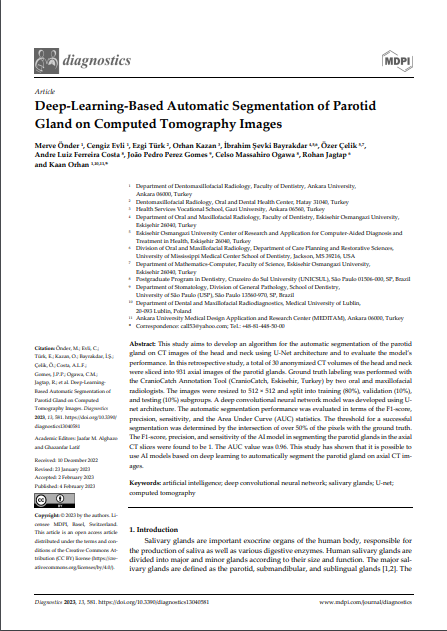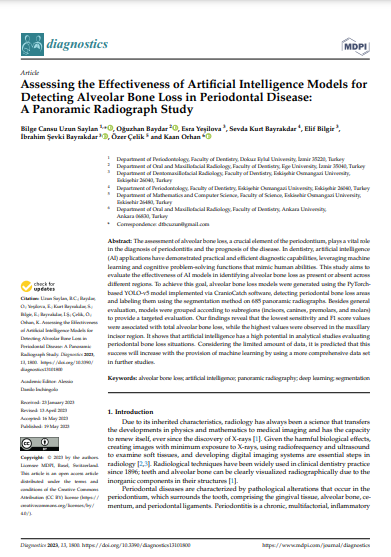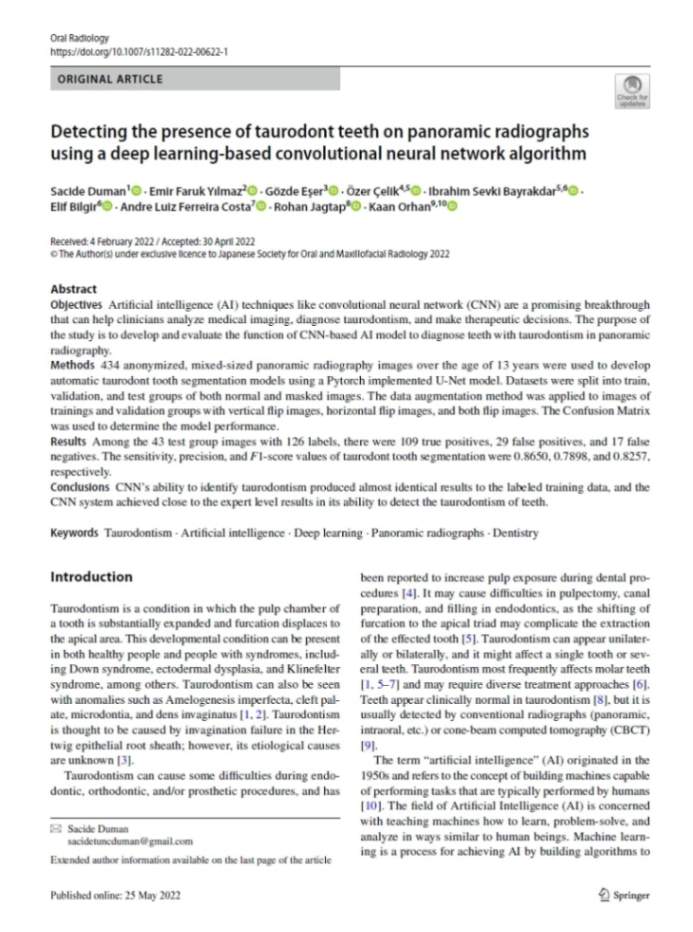An Artificial Intelligence Proposal to Automatic Teeth Detection and Numbering in Dental Bitewing Radiographs
Introduction
The study proposes the use of artificial intelligence, specifically deep learning techniques like Convolutional Neural Networks (CNNs), to automate the detection and numbering of teeth in dental bite-wing radiographs. This technology aims to streamline the process of creating dental charts and electronic records.
Background
Computer-aided systems have been developed to assist in medical and dental imaging, with deep learning systems like CNNs showing promise in automatically extracting image features without human interpretation. Previous applications of CNNs in dentistry include caries detection, apical lesion detection, and root morphology evaluation.
Methodology
- Bite-wing radiographs from adult patients without crowns, bridges, implants, or primary teeth were used.
- Two AI models were trained: one with 24 classes for all teeth and another with 12 classes for right and left teeth separately.
- Performance evaluation metrics included true positives, false positives, false negatives, sensitivity, precision, and F1 score.
Results
- The AI models demonstrated high accuracy in detecting and numbering teeth in bite-wing radiographs.
- The models showed promising results in correctly identifying teeth, with a low number of false positives and false negatives.
Discussion
The study highlights the potential of AI technology in improving dental imaging processes, saving time, and enhancing the accuracy of dental records. The use of CNNs for teeth detection and numbering in radiographs can have significant clinical implications for dental practices.
Conclusion
The research concludes that a CNN approach for analyzing bite-wing images holds promise for automating teeth detection and numbering. Implementing this technology can lead to more efficient dental chart preparation and electronic record-keeping.
Ethical Considerations
The study adhered to ethical standards outlined in the 1964 Helsinki declaration and obtained informed consent from all participants.
Future Directions
The study suggests that further research should focus on addressing limitations such as tooth deficiency in radiographs and expanding the application of AI technology in dental imaging.
I Want to Write a Scientific Research Project
CranioCatch is a global leader in dental medical technology that improves oral care in the field of dentistry. With AI-supported clinical, educational, and labeling solutions, we provide significant improvements in the diagnosis and treatment of dental diseases using contemporary approaches in advanced machine learning technology.
CranioCatch serves thousands of patients with dental health issues worldwide every day with its innovative technologies. That’s why we eagerly look forward to meeting our valued dentists who wish to work in the field of 'Scientific Research in Dentistry'.



 Contact Us
Contact Us

